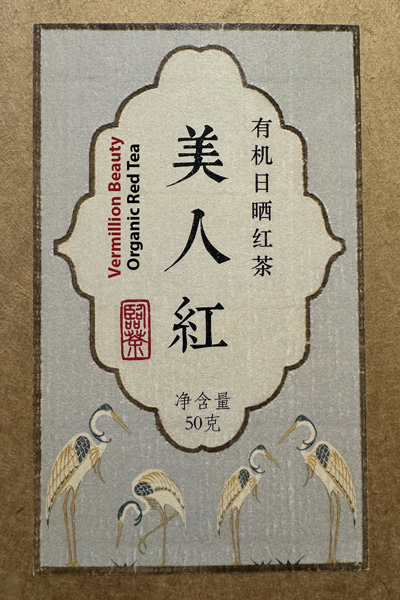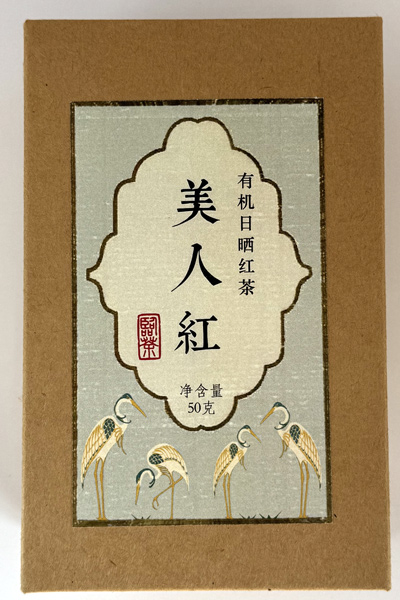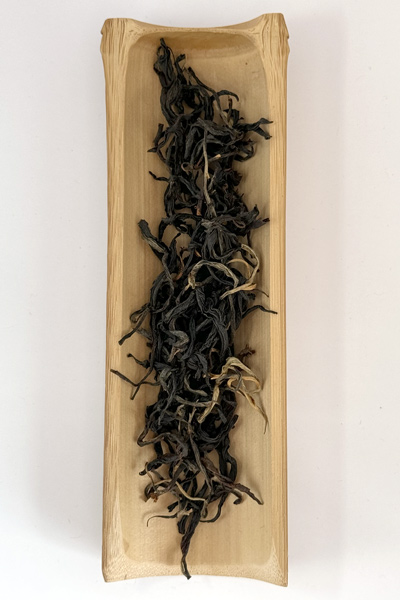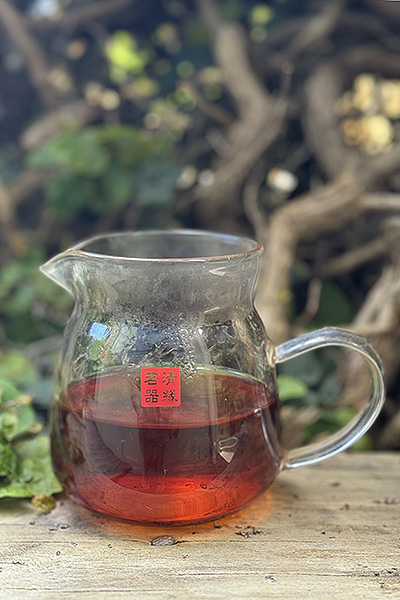Brother A-Ming’s Tea
Brother A-Ming’s tea plantation is located near the Qingjing Farm in Renai Township, Nantou County, Taiwan, at an elevation of about 1,800 meters. With the 3,400 meter Hehuan Mountain further up the mountain road and the 3,600 meter Chilai Mountain across the tea plantation - the overlapping rolling hills and mountains here are majestic and beautiful, similar to the Alps in Europe, and the area is often referred to as the “Taiwanese Alps”.
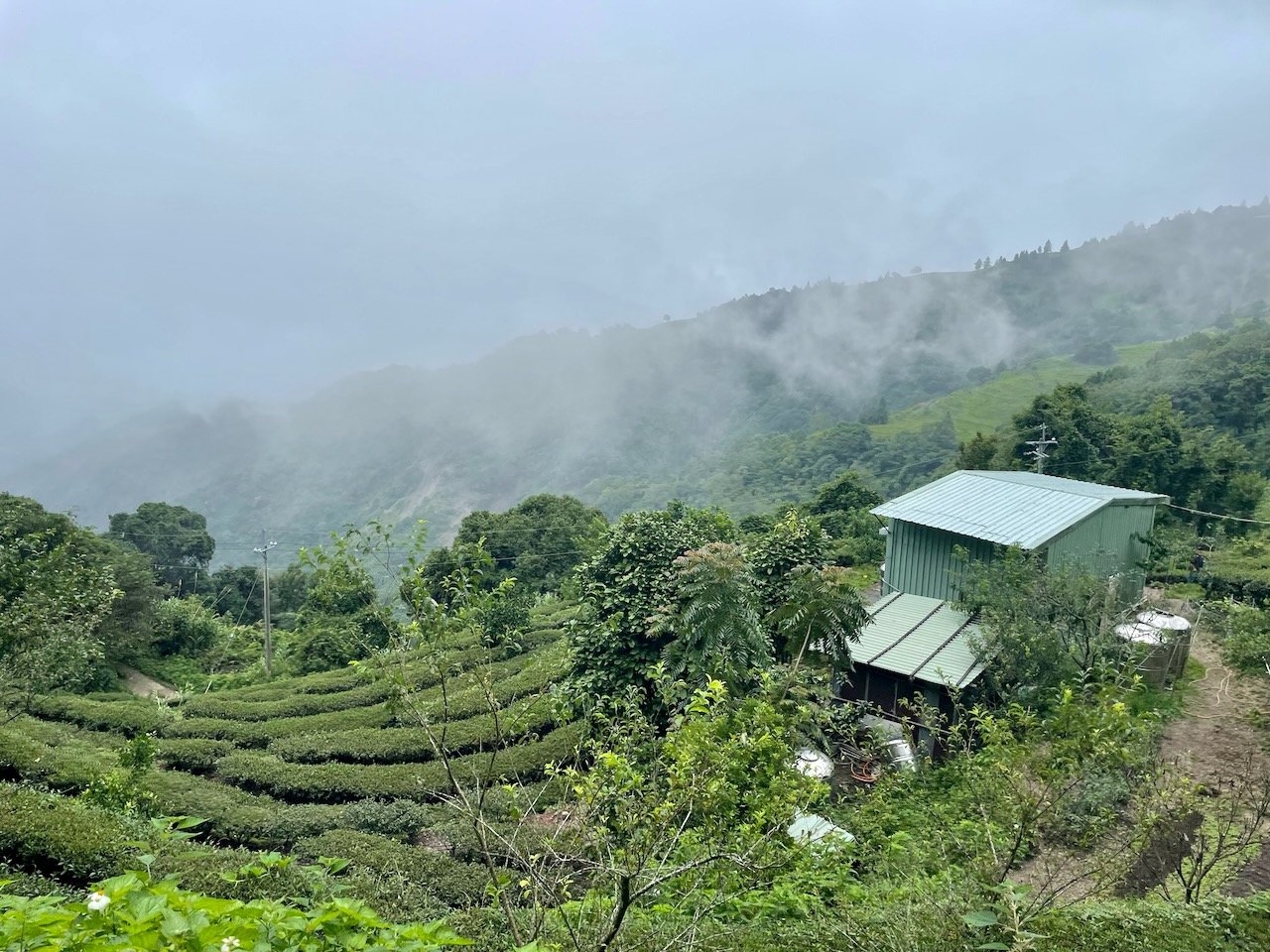
Originally, the area used to be the land of the Sedek aboriginals, and in the 1950s, the Nationalist government of Taiwan resettled the Chinese troops evacuated from Yunnan and Burma, and their dependents here. In 1967, Chiang Ching-kuo (蔣經國) visited the farm and renamed it “Qing Jing" (Clear Territory) Farm, because he thought this is the place where “the fresh air is available to you, and the elegance of the area is an immortal abode”.
Over the past seventy years, Qing Jing and He Huan Mountain area have become Taiwan’s most famous alpine resorts, where you can escape the summer heat and enjoy the snow in the winter, and is also a producer of high-cooling fruits and vegetables, such as cabbages, apples, and peaches, all of which are famous in Taiwan and abroad.
The aboriginal cultures of Taiwan and Yunnan merge here, and every year the aboriginal New Year’s Day, the Water Festival of the Lanyi, and the Torch Festival of the Yi attract many tourists, creating a special flavor of their own.
Brother A-Ming
The owner of the tea garden, a 70-year old farmer A-Ming is a native of Tainan, with a simple, straightforward, and generous personality. The ultraviolet rays of the mountains have tanned his skin red and black.
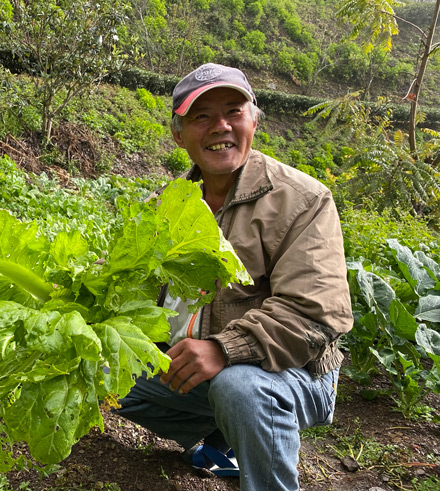
20 years ago he came to settle in the mountains of Qingjing, and leased a hectare of aboriginal reserve, where he planted peaches in the early days, and then switched to planting green oolong tea trees, with forests around the tea garden, a small vegetable garden for his family to eat, and a wide variety of flowers blooming in a beautiful, well-manicured manner. He himself is an unassuming man who lives with his 90-year-old mother in a small gray tin house, driving an old blue van.
The garden is beautifully tended for and the land is managed using organic farming methods, and no pesticides or chemical fertilizers were ever applied - only soy milk is used to fertilize the plantation. Organic tea gardens are particularly rare in such high mountains, and I only know of three or four in the whole of Taiwan! A-Ming doesn’t make tea himself - instead the fresh leaves are handed over to the tea factories down the road, which is very common in Taiwan, where there is a division of labor between the tea masters and the tea farmers. We own one of these factories.
The Priorities matter!
In November 2021, when we visited his tea plantation, we saw that the tea trees had sprouted a lot of “winter leaves”, a kind of particularly rare and precious tea leaves that come with a very high price and are highly sought after in the market. Another tea maker Lin Longxin and myself were overjoyed at the sight of these tea leaves - we were immediately tempted to buy them to make tea, and roughly estimated that we could make at least 50 pounds of dried tea from them, which could mean a small fortune! We were prepared to pay high price to A-Ming and offered to buy the whole harvest of these “Winter Slice” tea.
I thought A-Ming would be very happy about such lucrative business, but he replied to us flatly in Taiwanese: “I don’t love it, I love planting! No, I want to cultivate these trees first." Wow! For the sake of the tea trees’ health, he didn’t want to harvest and sell such expensive leaves! Doesn’t he have a problem with money? We asked, “Didn’t you do that before?” He said, “I’ve never done it before.” At that moment, I looked at his old mother and that simple corrugated tin house, basically a shack where they lived quite contently, and I was very touched in my heart! It became clear that this was the organic farming partner we had been long looking for.
Every time we went to the mountain, he was very enthusiastic about pulling radishes, cutting mustard greens or picking loquats from his garden to give to us, and he was especially proud of his organic cultivation techniques: “I guarantee you won’t eat anything more delicious!
When I got along with him, he was simple and direct without deliberations, giving me a particularly comfortable and down-to-earth feeling, and the simplicity of his appearance accentuated the dignity of his personality, reminding me of what Mencius said about a great man, an aura that is hard to come across in modern society.
Green Heart Oolong (青心烏龍)
I would like to mention “Green Heart Oolong”, a kind of small-leafed tea tree (also known as “Soft Oolong”), which is the tea tree species cultivated at A-Ming’s plantation.
According to the legend, it was originally brought to Taiwan from Fujian province by Lin Feng-chi (林鳳池), an official of the Qing Dynasty, to plant the seeds of the tea which had a low yield and was not easy to grow and manage, but had an excellent flavor. Over the past hundred years it has evolved into Taiwan’s most precious oolong tea variety, which is famous all over the world.
In 1990, “The Father of Taiwanese Tea” Prof. Wu Zhenduo went to Fujian to visit the country, and he recognized that “Short-footed Oolong” of Jianjian City had the same ancestor as the Green Heart Oolong, and that the Beiyuan Tribute Tea from the Song Dynasty should also have the same. However, the tea once drunk by the Emperor himself has been declining for several hundred years in the place of its origin, and it has only been started developing again in the recent years.
This is how the odds of time are, and it is saddening, but the tea species and the people who came to Taiwan across the sea, to “the treasure island" where “the flow is continuous and the leaf renews the root” is truly amazing. This is a marvelous example of universal karma fulfilled by the people.
